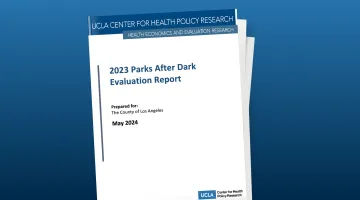Summary
Authors analyze health care utilization of complex Medicaid managed care beneficiaries whose primary care providers (PCPs) were Health Resources and Services Administration (HRSA)-funded health centers (HCs) versus three other groups: clinics not funded by HRSA, solo, and group practice providers. They compared health care use by provider type, controlling for demographics, health status, and other covariates, using California Medicaid administrative data for complex adult managed care beneficiaries with at least 1 primary care visit in 2018. They measured primary and specialty care evaluation and management visits and services; emergency department (ED) visits; and hospitalizations.
Findings: HRSA-funded HCs had lower predicted rates of specialty evaluation and management and other services than all others; lower predicted probability of any ED visits than clinics not funded by HRSA (54% vs. 56%) and group practice providers (51% vs. 52%); and lower predicted probability of any hospitalizations than solo (20% vs. 23%) and group practice providers (21% vs. 24%). Authors found that differences in HC care delivery and practices were associated with lower use of specialty, ED, and hospitalization visits compared with other PCPs for complex Medicaid managed care beneficiaries. Understanding the underlying reasons for these utilization differences may promote better outcomes among these patients.










